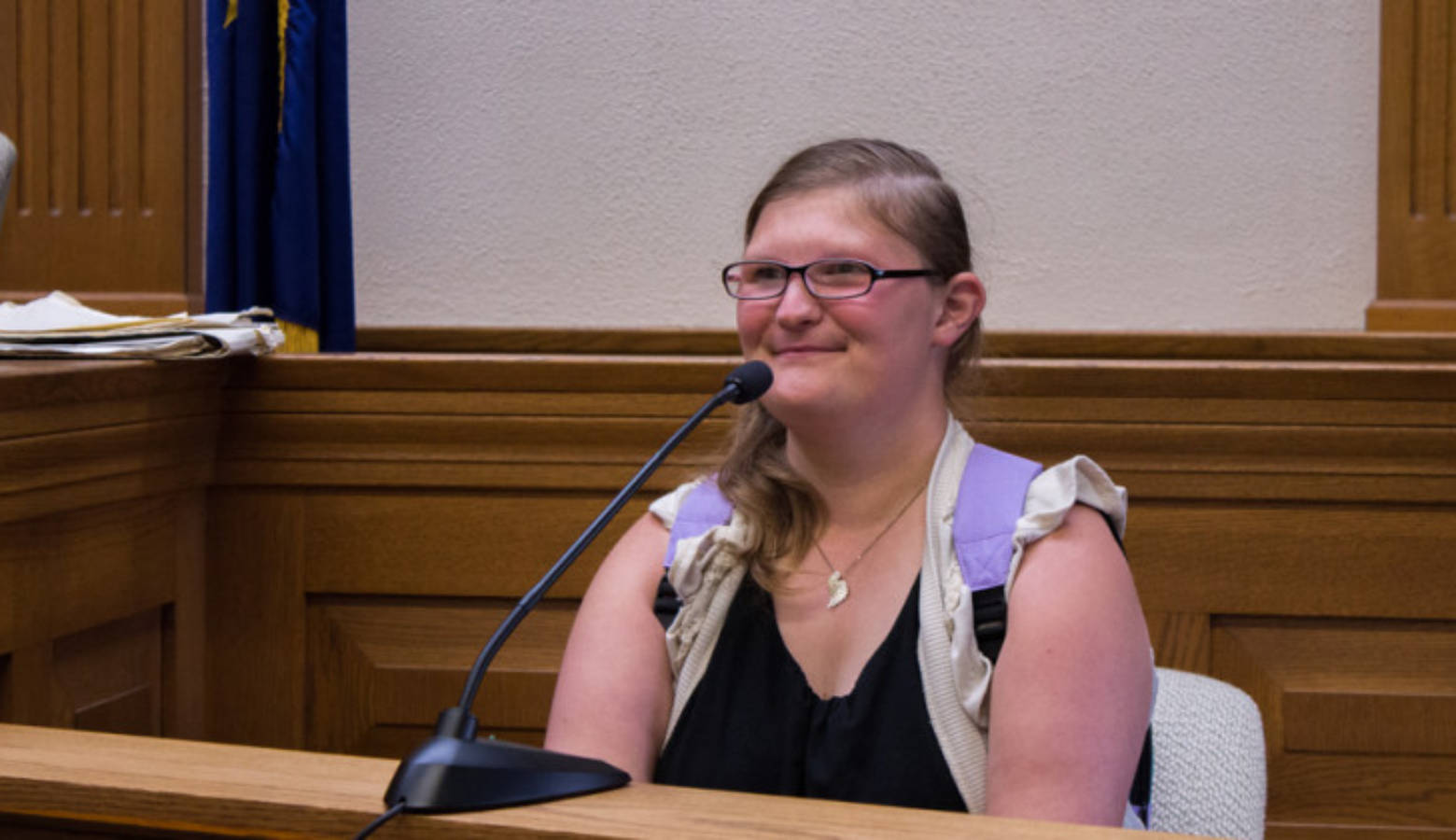Judge Approves First Client For New, Less Restrictive Alternative To Guardianship

When a person loses the ability to make important life decisions, a guardian is sometimes appointed to help. But many who regain some of that ability become stuck in a restrictive system that is no longer needed.
A county judge on Wednesday approved a first-of-its-kind case in Indiana that represents a new option for people in that situation.
Jamie Beck has an intellectual disability, and was placed into a nursing home at age 19 after both her parents passed away. A legal guardian was appointed.
She’s made dramatic progress in the years since. Beck recently moved to an apartment with a roommate and started a full-time job. Now she’s the first participant in a pilot program that replaces legal guardianship with a group of advisors, freeing the person to make decisions like where to live, who to marry, and what medical procedures to have done.
Beck’s guardian was Dan Stewart, who testified in the Wednesday hearing.
Stewart says Beck is no longer incapacitated – the legal term for someone unable to make life decisions. And he says she worked hard to earn her independence.
“Jamie has really set the bar to say that for people with capacity like hers, they can make their own decisions. And they do not have to have a legal guardian,” Stewart says. “Jamie’s not the only one that can accomplish this.”
Stewart will be one of a few supporters for Beck moving forward. She can call them for advice when something challenging comes up, like a big financial decision. But under this new model, called Supported Decision Making, she alone can make the final decision.
“Maybe Jamie will make a bad decision,” Stewart says. “That’s ok. We all make bad decisions. But we’re gonna learn from that. And we want her to learn from that.”
The model comes from a pilot program in Wayne County. It’s available to people around the state, but advocates say their goal is to get it into state statute, which would increase awareness and support.
They plan to lobby lawmakers to do so in the next legislative session.

